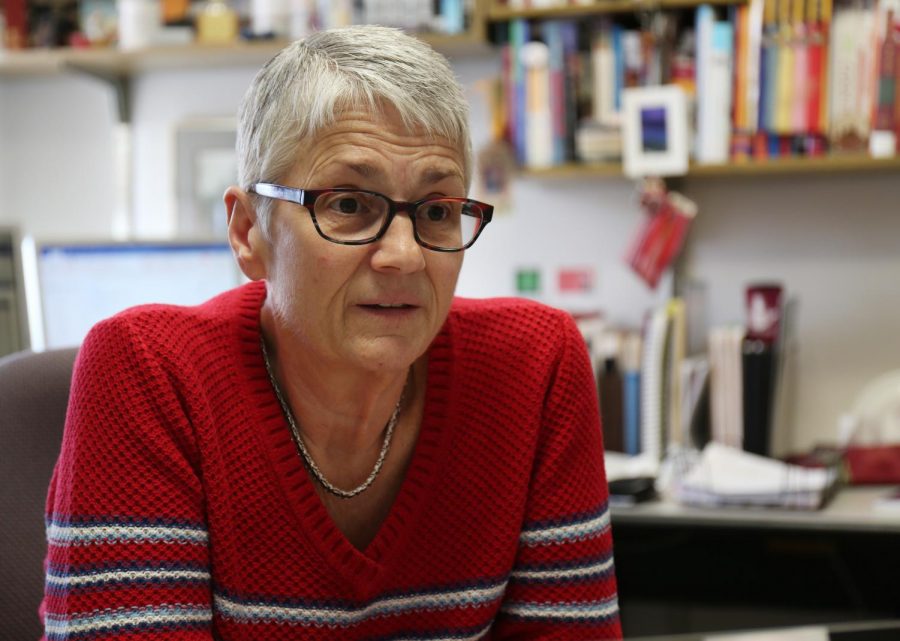Institute for senior hospitality in works
As elderly population grows, so does the need for trained work force
ABBY LINNENKOHL | THE DAILY EVERGREEN
Nancy Swanger, director of Hospitality Business Management, speaks about the posssibility of creating a senior living management major within the College of Business.
February 7, 2018
The College of Business will expand courses for students looking to work in the senior living industry.
“It has been a project in the making for several years,” said Nancy Swanger, School of Hospitality Business Management director.
The Faculty Senate approved Swanger’s proposal in late January to expand the Hospitality Business Management curriculum and scholarships, crucial steps for creating the Institute for Senior Living.
Swanger said the institute would bring together industry professionals and faculty members from other disciplines around campus who focus on improvements to senior living and the senior housing industry.
“This is the first such institute of its kind,” she said. “Our focus is really finding solutions to senior living community-based problems.”
The difference between senior living and hotel management, she said, is the care component of senior living.
Scott Eckstein, clinical assistant professor and senior living executive-in-residence, referred to that care component as “softer skills,” which include emotional intelligence, psychology and gerontology. Eckstein said caring for seniors involves their family, so while senior living has everything any other business would have, there is also an emotional aspect.
He said executives in the senior living industry from Western Washington came to the university looking for help to find solutions for problems in the industry.
Eckstein said representatives in senior living say the business would need more managers as the elderly population grows. In addition to improving the lives of seniors and their families, he said, he wants the institute to provide workforce opportunities. However, he noted senior living is not typically as desired as other businesses.
“One of the problems that senior living has is that it’s not sexy,” Eckstein said.
He said he wants the institute to show students that they can go into the senior living industry and make an impact.
Swanger said she hopes WSU will become a leader in the growing market.
“We want the industry to look to us for solutions in senior living,” she said.
There is a huge demand for quality care in senior living management, she said, so students can spend a lifetime in the career.
In terms of university-wide impact, Swanger said the institute could help with fundraising and research.
She said the school wants to create an institute that is a formal academic entity on campus, with opportunities for collaborations and research. She said the institute is unique in that it could better take on the “softer skills” Eckstein described.
Over time, the hospitality school would like to offer senior living management as a third major, in addition to the hospitality business management and wine and beverage business management majors, Swanger said.
She said the institute already has some scholarship money in place, and they are in the process of a fundraising campaign for a naming gift for the late Granger Cobb, who taught senior hospitality course ar WSU and was instrumental in the field of senior living.
“[We’re] definitely looking for all of this to be self-sustaining, ultimately,” she said.









